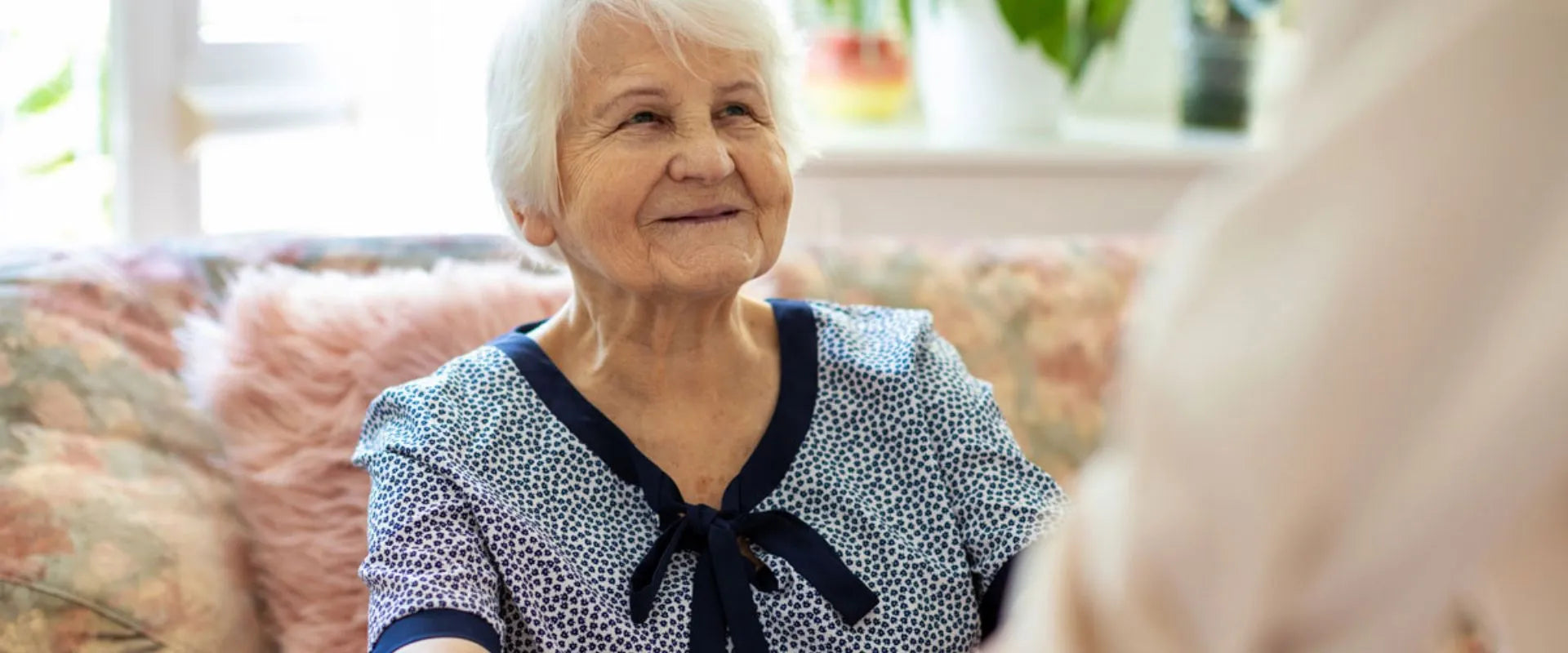Living much longer as well as living with longer life expectancy while appearing and experiencing a young and disorder-free lifestyle are not synonymous.
Individuals are investing longer periods experiencing age-related chronic illnesses, despite the fact that their survival rates are increasing.
That would be to say, rather than gaining more decades of energy and excellent health, we are gaining additional decades of illnesses. So the question is what can we do to avoid such a thing? To understand the answer you would need to first know about longevity and ageing.
Ageing
Aging is a natural process that every living organism undergoes. As time passes, our bodies and cells gradually experience changes, leading to visible signs of aging such as wrinkles, gray hair, and reduced physical vitality. With advancements in science and technology, researchers and experts have been exploring ways to combat the effects of aging, enhance longevity, and even reverse age-related damage. However, it is crucial to understand the distinctions between the terms "anti-aging," "longevity," and "reversing age" to gain a comprehensive understanding of these concepts.
Longevity
Longevity refers to the length of time a person lives, often associated with the overall lifespan. It encompasses the biological, genetic, environmental, and lifestyle factors that influence how long an individual is likely to live. Achieving longevity involves promoting health and well-being to extend life expectancy.
Factors that Affect Longevity
Numerous factors contribute to an individual's longevity. Here are some of the key factors:
Genetics:
Genetic predispositions play a significant role in determining our life span. Certain genetic variations can increase the risk of age-related diseases or provide protective effects against them.
Lifestyle Choices: Our daily habits and choices profoundly impact our longevity. Engaging in regular physical activity, maintaining a balanced diet, avoiding tobacco and excessive alcohol consumption, and managing stress can positively influence our overall health and increase life expectancy.
Environmental Factors: The environment we live in can influence our longevity. Factors such as pollution levels, access to healthcare, socioeconomic status, and social support systems can impact our health and well-being, ultimately affecting our longevity.
Chronic Disease Management: Managing chronic diseases effectively can significantly impact longevity. Conditions such as cardiovascular diseases, diabetes, and certain cancers, when properly controlled and treated, can reduce the risk of complications and premature death.
Mental Well-being: Emotional and psychological factors also contribute to longevity. Maintaining good mental health, engaging in social connections, and managing stress can enhance overall well-being and promote longevity.
Anti-Ageing
Anti-ageing refers to practices, products, and interventions aimed at slowing down or preventing the visible signs of ageing. It focuses on maintaining a youthful appearance, both externally and internally. Anti-ageing strategies often involve skincare routines, dietary modifications, exercise, and the use of cosmetic procedures or supplements.
While ageing is a natural and inevitable process, anti-ageing techniques aim to minimize the physical signs of ageing, such as wrinkles, fine lines, age spots, and loss of elasticity in the skin. These strategies may also target age-related health issues, such as joint pain, cognitive decline, and reduced energy levels.
How Longevity and Anti-Ageing are Related?
Longevity and anti-ageing are interlinked concepts but approach the concept of aging from different perspectives.
Longevity focuses on extending the overall lifespan by addressing the factors that influence how long an individual is likely to live. It encompasses maintaining good health, preventing chronic diseases, and promoting a healthy lifestyle to enhance life expectancy.
On the other hand, anti-ageing focuses on mitigating the visible signs of ageing and minimizing age-related health issues. It primarily emphasizes maintaining a youthful appearance and vitality, often through cosmetic and lifestyle interventions.
While longevity aims for a prolonged lifespan, anti-ageing aims to enhance the quality of life by addressing the aesthetic and health concerns associated with ageing. They complement each other by promoting overall well-being and vitality as individuals age.
Reversing Age
Reversing age is a concept that pertains to the reversal or restoration of the physiological changes associated with ageing. While it remains a topic of scientific research and exploration, significant advancements have been made in understanding the mechanisms of ageing and potential interventions.
Various approaches are being explored to reverse age at the cellular and molecular levels. These include gene therapies, stem cell treatments, senolytic drugs to remove senescent cells, and interventions to restore the function of aging organs.
It is important to note that while scientific progress has been made in this field, the concept of complete age reversal is still largely theoretical and experimental. Further research is required to develop safe and effective interventions that can reverse age-related changes in humans.
How Anti-aging and reverse aging are different from each other?
Anti-Aging: Slowing Down the Clock
When we talk about anti-aging, we are primarily referring to practices, products, and treatments that aim to slow down the aging process. Anti-aging approaches encompass a wide range of strategies, both internal and external, to minimize the visible signs of aging and promote overall well-being.
- Anti-aging focuses on prevention and slowing down the aging process.
- It includes lifestyle modifications, skincare routines, and healthy habits.
- Anti-aging aims to maintain a youthful appearance and vitality.
Reverse Aging: Turning Back the Clock
Contrary to anti-aging, reversing age implies going beyond slowing down the aging process and attempting to revert age-related damage at a cellular or molecular level. It involves interventions that aim to rejuvenate the body and potentially restore it to a more youthful state.
- Reverse aging goes beyond prevention and aims to restore youthfulness.
- It explores scientific advancements like regenerative medicine and genetic interventions.
- Reversing age aims to repair age-related damage and restore function.
While anti-aging and reverse aging share a common goal of combating aging, they differ in their scope and objectives. Anti-aging focuses on maintaining a youthful appearance and slowing down the natural aging process while reversing age delves into the possibility of reversing age-related damage and rejuvenating the body.
The Effects of Aging: Can They Be Reversed?

Aging manifests in various ways, affecting both our appearance and our overall health. From wrinkles and age spots to cognitive decline and reduced physical capabilities, the effects of aging can be significant. The question arises: Can these effects truly be reversed?
Skin Aging: Targeting Wrinkles and Fine Lines
One of the most visible signs of aging is the development of wrinkles, fine lines, and sagging skin. The skin undergoes structural changes as we age, such as a decrease in collagen and elastin production, resulting in reduced skin elasticity and firmness.
- Topical treatments like retinoids, peptides, and antioxidants can help improve the appearance of wrinkles.
- Non-invasive procedures like laser therapy and microdermabrasion stimulate collagen production.
- Invasive procedures such as facelifts provide more dramatic results by tightening and lifting sagging skin.
While these approaches can effectively reduce the visible signs of skin aging, it is important to note that they primarily address the symptoms rather than reverse the underlying aging process.
Cellular Aging: Telomeres and Beyond
At a cellular level, aging is influenced by various factors, including telomeres, which are protective caps at the ends of chromosomes. Telomeres naturally shorten as cells divide, eventually leading to cell senescence or death. Scientists have been exploring ways to potentially extend telomeres and delay cellular aging.
- Telomerase activation, a process that lengthens telomeres, has shown promise in laboratory studies.
- Lifestyle factors like regular exercise, a healthy diet, and stress reduction may contribute to telomere maintenance.
- However, more research is needed to fully understand the implications of telomere extension and its potential as an anti-aging intervention.
While telomeres play a significant role in cellular aging, they are just one aspect of the complex aging process. Scientists are actively researching other mechanisms involved in cellular aging and exploring potential interventions to slow down or reverse these processes.
Preventing Age-Related Diseases
Health supplements hold tremendous potential in the field of aging research. It focuses on harnessing the body's natural regenerative capabilities to repair age-related damage and restore tissue function. Stem cell therapy, tissue engineering, and gene therapies are some of the areas actively explored in regenerative medicine.
- With LongeVit, you can embrace the ageing process while maintaining your vitality, mental acuity, and overall wellness. Our commitment to quality and efficacy ensures that you receive the best possible support in your journey toward a longer, healthier, and more vibrant life.
- ReseVit is a Potent antioxidant that supports liver health, respiratory function, and overall detoxification.
- SeneVit, a groundbreaking dietary supplement specifically formulated to target senescent cells and support overall health and vitality.
- SportVit supports peak physical performance, mental clarity, and holistic health, making it the perfect pre-workout supplement and caffeine alternative.
While regenerative medicine shows promise in repairing age-related damage, it is still in its early stages, and extensive research and clinical trials are needed to ensure safety and efficacy.
The Bottom Line
Understanding the differences between anti-ageing, longevity, and reversing age is crucial in navigating the complex landscape of ageing. Longevity focuses on extending the overall lifespan by addressing various factors that influence life expectancy. Anti-ageing strategies aim to minimize the visible signs of ageing and promote overall well-being as individuals age. Reversing age remains an area of ongoing scientific research, with promising advancements but no definitive breakthroughs yet.
By embracing a holistic approach that incorporates healthy lifestyle choices, regular exercise, proper nutrition, and mindful self-care, individuals can promote longevity, slow down the ageing process, and enhance their quality of life. Remember, ageing is a natural part of life, and while we can't stop it entirely, we can age gracefully and with vitality.





















Leave a comment
This site is protected by hCaptcha and the hCaptcha Privacy Policy and Terms of Service apply.